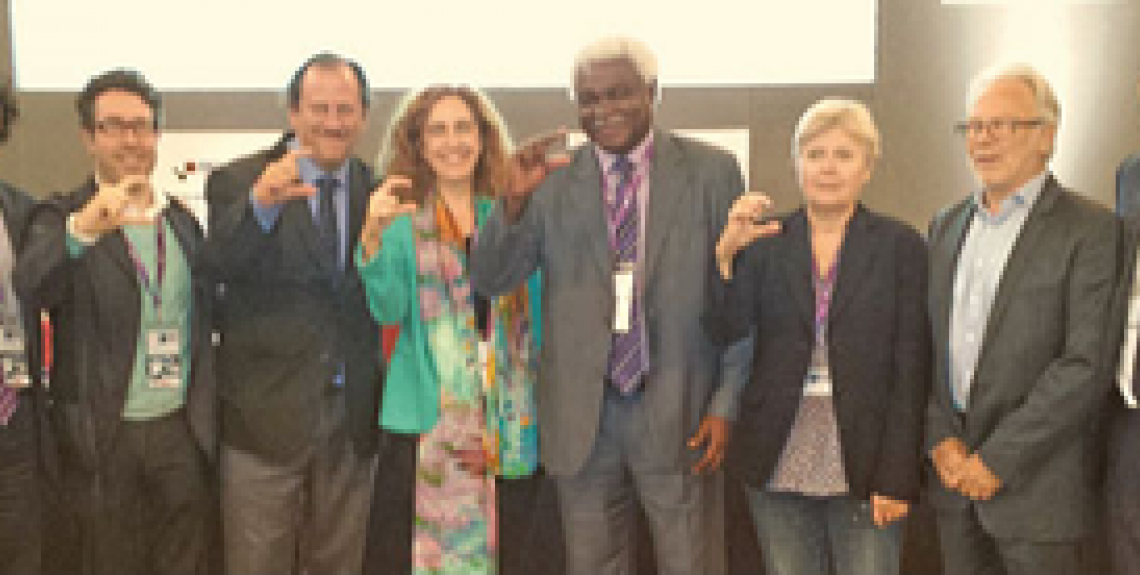Bilbao has been chosen to host the First UCLG Culture Summit in 2015 during the meeting of the UCLG Executive Bureau held in Liverpool. Since the founding Congress of Paris, culture has been at the heart of UCLG, as demonstrated by the adoption of the Agenda 21 for culture (May 2004), the policy statement "Culture: Fourth Pillar of Sustainable Development" (November 2010), its key role in the Global Taskforce for the Post-2015 Agenda (since March 2013) and the activities of Committee on Culture, of which Bilbao is a UCLG direct member.
The Committee on Culture began the process of developing the new Agenda 21 for culture in 2013 in Lille, Buenos Aires and Rabat, and will continue in 2014 through meetings, seminars, articles, questionnaires and visits to the pilot cities. This process will conclude with a major event – the "UCLG Culture Summit" – to be held in 2015 in Bilbao.
The UCLG Culture Summit will respond to the growing importance that is given to culture by international organizations and forums, as demonstrated by the UNDP and UNESCO. The Summit will also represent a crucial milestone in defining the Agenda of United Cities and Local Governments, and will voice powerful messages about the role of culture within the framework of globalization.
The UCLG World Congress held in Rabat (October 2013) confirmed the importance of cultural issues as a key dimension of the sustainable development of cities, regions and local governments. The World Council further agreed to proceed with the renewal of the Agenda 21 for culture. UCLG members and their partners share this need to renew the document on culture and sustainable local development (a) based on the milestones achieved with the Agenda 21 for culture, (b) to update its recommendations, with a clearer orientation towards the implementation of policies, and (c) to give greater importance to the promotion of good practices and facilitate more exchanges (peer reviews, expertise).
Bilbao has worked closely with UCLG since its founding in 2004, chairing the Committee of Digital and Knowledge-Based Cities, as well as being an active member of the Committee on Culture. Proof of this is the commitment that the city took on in 2005, with the adoption of Agenda 21 for culture and the alignment of its cultural policy with the principles set out therein, as well as its close collaboration with the Committee on Culture in this new phase of defining the "New Agenda 21 for culture".
Culture plays a vital role within Bilbao's development strategy, as a driver of economic activity as well as in the social transformation of the city. Since the early 90s, when Bilbao began its major economic and urban transformation, culture, along with the creation of the Guggenheim Museum Bilbao, has been a key and constant factor in the strategy led by the local government to achieve economic development, job creation and social cohesion within the city.
The implementation of the municipal cultural policy developed over the past two decades has resulted in the consolidation of Bilbao as a leading cultural city, with important cultural infrastructures that contribute to the economy in terms of wealth creation, the safeguarding and creation of jobs and the city's image.
It was thanks to this commitment to culture, as a driver of the economic development and social transformation carried out by the city, that UCLG has taken the decision to select Bilbao as the host of the First Culture Summit, since it represents an opportunity to demonstrate how culture can be a driver for change and sustainable development within a city, of which Bilbao presents a clear example.
Source: Bilbao International


